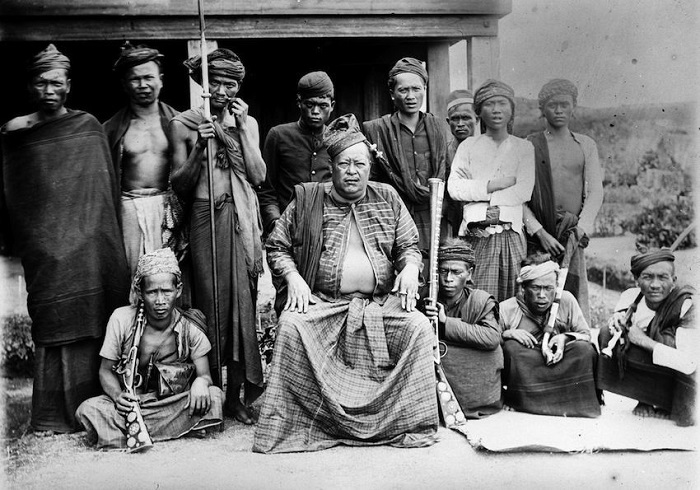Salam #MasBro #MbakBro
Suku Gujarat (bahasa Gujarati: ગુજરાતી) adalah sebuah kelompok etnolinguistik Indo-Arya yang biasanya menuturkan bahasa Gujarat, sebuah bahasa Indo-Iran. Tokoh-tokoh Gujarat terkenal meliputi Mahatma Gandhi, Sardar Vallabhai Patel, Morarji Desai, Sam Bahadur, Vikram Sarabhai, Swami Dayanand Saraswati, Shyamji Krishna Varma, Muhammed Ali Jinnah, Freddie Mercury, Azim Premji, Dhirubhai Ambani, Narendra Modi dan Jamsetji Tata. Suku Gujarat paling berpengaruh dalam bidang industri dan tokoh-tokoh pentingnya memainkan peran menonjol dalam mengenalkan doktrin Swaraj dan kemenangan dekisif gerakan kemerdekaan India 1947 di India pada masa penjajahan Inggris.[29][30][31]
Masih ada pertanyaan?
Masih butuh informasi lainnya?
Silahkan chat sama mimin kita, buat minta dibuatin tulisannya ya kekitaan.com/ButuhTulisan
Seneng bisa berbagi.
Pasti bermanfaat.
Suka menulis?
Silahkan daftar untuk menulis tentang fakta Indonesia lainnya.
Sama seperti di youtube #MasBro #MbakBro akan mendapatkan penghasilan dari views.
Mari #HIDUPdariKARYA
Mau tanya? klik kekitaan.com/mauNULIS
Terimakasih
id.wikipedia.org dibuka pukul 12:27 WIB pada Hari Senin tanggal 16 November 2020
Referensi
- ^ “Scheduled Languages in descending order of speaker’s strength – 2001”. Komisioner Sensus dan Pendaftaran Umum India.
- ^ Joel Millman (1998). The other Americans: how immigrants renew our country, our economy, and our values. Pennsylvania State University. hlm. 170. ISBN 9780140242171. Diakses tanggal 28 February 2017.
There are over half a million Gujarati in America today.
- ^ Dan Mayur (2017). Living Dreams. Mehta Publishing House. hlm. 335. ISBN 9789386342140. Diakses tanggal 28 February 2017.
Nevertheless, the half or million so Gujaratis in the United States, referred to as Gujjus, are entrepreneurial by nature…
- ^ “Gujaratis 6% of Indians, but 20% of US Indians”. http://timesofindia.indiatimes.com. Diakses tanggal 28 February 2017. Hapus pranala luar di parameter
|website=(bantuan) - ^ “Gujarati of Pakistan”. PeopleGroups.org. Diakses tanggal 14 January 2016.
- ^ Kesalahan pengutipan: Tag
<ref>tidak sah; tidak ditemukan teks untuk ref bernamaukncgo.org - ^ “Gujarati of Tanzania”. PeopleGroups.org. Diakses tanggal 1 March 2017.
- ^ Raymond Brady Williams (2001). An Introduction to Swaminarayan Hinduism. University Press, Cambridge. hlm. 208. ISBN 0-521-65279-0. Diakses tanggal 5 February 2015.
Temple building is a sign of the growth in numbers and the increased prosperity of the Gujarati immigrants…The two decades between 1950 and 1969 were a heady period of success for the Gujaratis of East Africa… Michael Lyon observed that the Gujaratis acquired a new role in the colonial economics of East Africa, and ultimately a tragic one. They became a privileged racial estate under British protection. The Indian population in Kenya increased from 43,625 in 1931 to 176,613 in 1962… More than 80 percent were Gujaratis.
- ^ “Gujarati Kenyans of Kenya”. PeopleGroups.org. Diakses tanggal 1 March 2017.
- ^ “NHS Profile, Canada, 2011, Census Data”. Government of Canada, Statistics Canada. Diakses tanggal 4 February 2015.
- ^ “Gujarati of Madagascar”. PeopleGroups.org. Diakses tanggal 1 March 2017.
- ^ “Gujarati of Malawi”. PeopleGroups.org. Diakses tanggal 1 March 2017.
- ^ “Gujarati of Myanmar”. PeopleGroups.org. Diakses tanggal 1 March 2017.
- ^ Bharat Yagnik. “Oman was Gujaratis’ first stop in their world sweep”. The Times of India. Diakses tanggal 5 February 2015.
Oman’s capital Muscat was the first home for Gujarati traders away from the subcontinent. The Bhatia community from Kutch was the first among all Gujaratis to settle overseas — relocating to Muscat as early as 1507! The Bhatias’ settlement in the Gulf is emphasized by Hindu places of worship, seen there since the 16th century. As historian Makrand Mehta asserts, “Business and culture go together.”
- ^ “Gujarati of Malaysia”. PeopleGroups.org. Diakses tanggal 1 March 2017.
- ^ Rita d’Ávila Cachado. “Samosas And Saris:Informal Economies In The Informal City Among Portuguese Hindu Families”. Diakses tanggal 4 February 2015.
The Hindus in Great Lisbon have similarities with Hindus in the United Kingdom: they are mostly from a Gujarati background and migrated from ex-colonial countries. Yet the colonial system they came from was mostly Portuguese, both in India and in East Africa… Nevertheless, a realistic estimate is that there are about 30,000 Hindus in Portugal. That includes Hindu-Gujaratis, who migrated in the early 1980s, as well as Hindu migrants from all parts of India and Bangladesh, who migrated in the late 1990s.
- ^ “Gujarati of Bahrain”. PeopleGroups.org. Diakses tanggal 1 March 2017.
- ^ “Gujarati of Mozambique”. PeopleGroups.org. Diakses tanggal 1 March 2017.
- ^ “Gujarati of Fiji”. PeopleGroups.org. Diakses tanggal 1 March 2017.
- ^ “Gujarati of Reunion”. PeopleGroups.org. Diakses tanggal 1 March 2017.
- ^ “Gujarati of Uganda”. PeopleGroups.org. Diakses tanggal 1 March 2017.
- ^ “Gujarati of Zambia”. PeopleGroups.org. Diakses tanggal 1 March 2017.
- ^ “Gujarati of Burundi”. PeopleGroups.org. Diakses tanggal 1 March 2017.
- ^ “Gujarati of Singapore”. PeopleGroups.org. Diakses tanggal 1 March 2017.
- ^ “Gujarati of Rwanda”. PeopleGroups.org. Diakses tanggal 1 March 2017.
- ^ “Gujarati of France”. PeopleGroups.org. Diakses tanggal 1 March 2017.
- ^ “Gujarati of Maldives”. PeopleGroups.org. Diakses tanggal 1 March 2017.
- ^ “Gujarati of Indonesia”. https://www.peoplegroups.org/Explore/groupdetails.aspx?peid=14880. Hapus pranala luar di parameter
|website=(bantuan); - ^ M. K. Gandhi (2014). Hind Swaraj: Indian Home Rule. Sarva Seva Sangh Prakashan. Diakses tanggal 11 December 2015.
- ^ Minahan, James B. (2012). Ethnic groups of South Asia and the Pacific : an encyclopedia. Santa Barbara, Calif.: ABC-CLIO. hlm. 90. ISBN 1598846590. Diakses tanggal 12 December 2015.
Anti-British sentiment led to a strong Gujarati participation in the Indian independence movement.
- ^ Yagnik, Achyut; Sheth, Suchitra (2005). The shaping of modern Gujarat : plurality, Hindutva, and beyond. New Delhi: Penguin Books. ISBN 0144000385. Diakses tanggal 12 December 2015.
Bacaan tambahan
| Wikimedia Commons memiliki media mengenai Gujarati people. |
- Jhaveri, Krishanlal Mohanlal (ed.) (2003). The Gujaratis: The People, Their History, and Culture. New Delhi: Cosmo Publications..
Kata kunci lain yang sering dicari …Suku Gujarat, Suku Gujarat di Indonesia, Suku di Indonesia

Tinggalkan Balasan
Anda harus masuk untuk berkomentar.